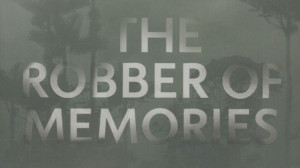As the end of the year ruthlessly approaches, I have found solace in a book about a river journey into the jungles of my homeland, Colombia. There is nothing like a travel book to cure winter and holiday woes. Michael Jacobs is a British writer of Irish and Spanish descent who has written numerous travel guides, but The Robber of Memories: a River Journey through Colombia is something more. It is half travel book, but also half fancy, spurred by the author’s ability to turn his life into metaphor. The metaphor is this: with his father passed, taken by Alzheimer’s, and his mother at the onset of dementia, Jacobs began to see the tumultuous river Magdalena (once the only thoroughfare through a wild, inhospitable jungle during colonization) as that of Lethe, the river of the Greek underworld that if drunk from would erase all your memories.
Latino studies scholars might already cringe at such a premise (in the tradition of our otherness represented in media and literature, a South American river equated with one in the underworld, is, well, a bit questionable) but the metaphor feels genuine. The book opens when, by chance, at a bar after the Cartagena Literary Festival, Jacobs spots Gabriel Garcia Marquez enjoying a beer with his family. Jacobs has a mutual friend introduce him — his friend does so by exaggerating (or foretelling) that he is an Englishman obsessed with the river Magdalena. Garcia Marquez enthuses he would love to chat with Jacobs, but as the band serenading Garcia Marquez renews their efforts, Garcia Marquez — then rumored (now confirmed) to be suffering from dementia — grows distant.
“His eyes were half-open and staring quizzically towards me,” Jacobs writes, “wondering perhaps who I was. I felt for a few moments that… he had become a caiman watching me from the banks of a tropical river, somnolent and near invisible, but with eyes that peered above the murky waters, taking in everything… offering their blessing to a journey I had already begun that night in my mind, up a river that was also a metaphor of memory, into a luxuriant world of marvels and dangers, to areas of the past both brilliant and dark, on to the Magdalena’s high and distant source, in Andean moorland, by the shores of oblivion.”
If you decide to read this book, don’t expect a forward building journey down a river. Jacobs’ journey is more one of waiting: waiting for his passage to be secured on a boat, waiting for said boat to get unstuck and pick him up, waiting for a different boat, then waiting as that boat is also stranded on the river. It seems fitting that a sideways and upwards inquiry into remembering and forgetting is halted by an obstacle course of floods and droughts and fear of encountering paramilitaries and guerrillas.
 Wikimedia Commons
Wikimedia Commons With a Colombian companion, Julio, and under the dominion of a captain who is jovial and loud, they finally get going. But the start of the jouney is comically disappointing; the boat travels at jogging speed and is prone to getting stuck on the riverbed. The captain tells Jacobs that navigating the river Magdalena is not an exact science, and that his sailors have not undergone official training. In the tedium of hours, Jacobs watches the sailors poke at the river with a long stick to guess the depth and thereby navigate the boat, and meanwhile he daydreams about Colombia’s troubled history and the fleeting memory of his mother. The ringing of his telephone, which explodes, surprisingly, at remote parts of the river, often interrupts his thinking. It is usually the nurse calling at the behest of his mother, who in the depths of her dementia has come to believe that Jacobs is her late husband, alive and in the process of abandoning her. At night Julio and Jacobs entertain themselves by hiding from the controlling captain and stealing some of his sailors to drink rum in the hull of the boat.


